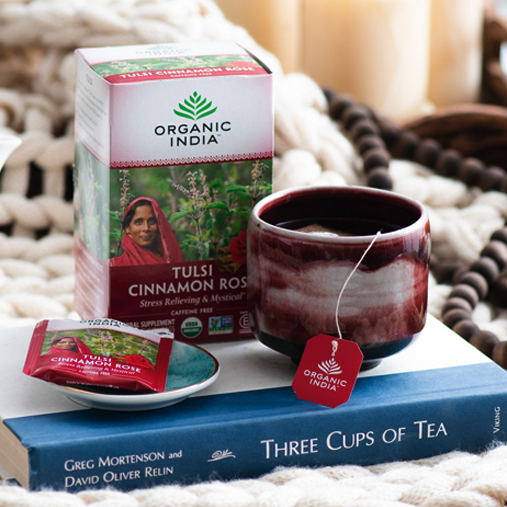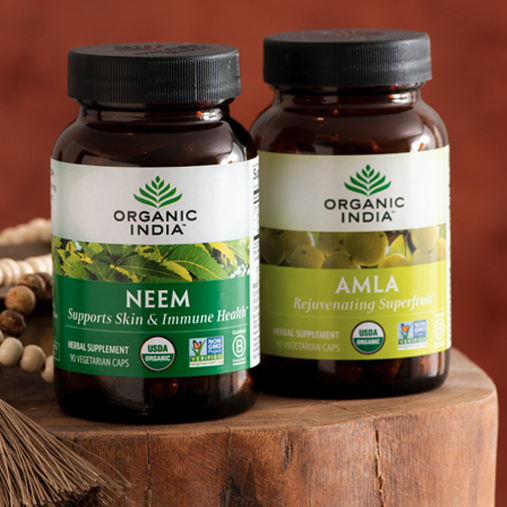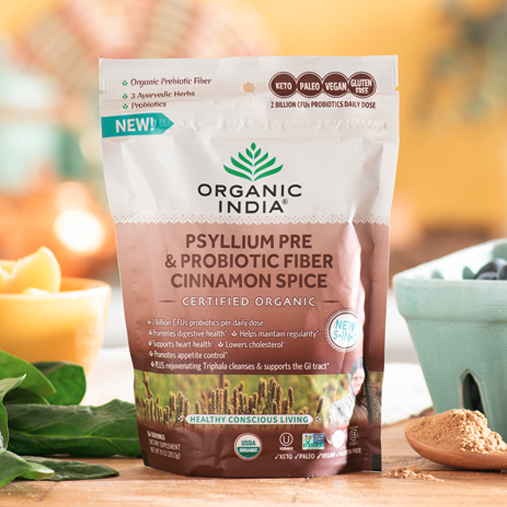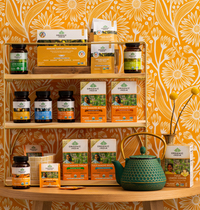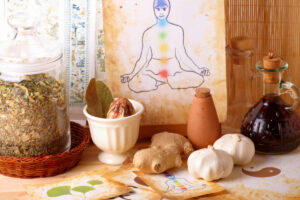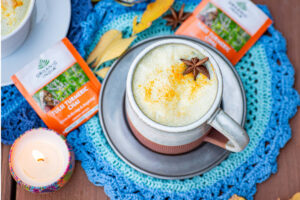There are few flowers more globally iconic than the Rose.
Rich in symbolism, tradition, and beauty, the mention or scent of roses transports us to memories of celebratory bouquets, beautiful rose bushes, or times of deep romance.
However, did you know Rose is more than just a flower?
Rose tea, for example, has been used across cultural wellness systems, including Ayurveda, as a nourishing and soothing elixir.
Research also suggests Rose is more than just a pretty face, and harbors various active plant compounds that may support multiple aspects of physical, mental, and emotional well-being.
This may be why people have been drawn to Roses and Rose tea for comfort, beauty, and solace for centuries.
In this article, we’ll share the fascinating traditional uses and research behind the benefits of Rose Tea, and how to brew the perfect cup at home.

Why Everyone Should Make Rose Tea Part Of Their Wellness Rituals
If you’ve ever experienced rose-infused tea’s sweet scent and bittersweet flavor, you understand its allure.
Herbal teas often contain flowers and are a simple, mindful, and enjoyable way to take advantage of botanicals’ benefits.
Although Chamomile is common in teas, Rose is a lesser-known powerhouse for stress support, relaxation, digestive comfort, spiritual support, and more.*
Plus, research has shown Rose tea is equivalent or greater in phenol content and antioxidants than green tea, without caffeine!
Come along as we explore the details behind the benefits and pleasures of Rose tea.
Traditional Uses Of Rose (“The King of Flowers”) and Rose Tea in Ayurveda & Beyond
In Ayurveda, Rose is associated with the Heart and is believed to impart soothing feelings of harmony and calm while supporting the transformation of negative emotions into positive ones.
Rose was called the “King of Flowers” in Ancient Ayurveda and is considered “tridoshic,” meaning it supports and benefits all three Doshas (Vatta, Pitta, Kapha)*.
Rose tinctures, decoctions, topical applications, and Rose tea have also been traditionally used to support*:
- Cardiovascular function
- Cooling of the blood and other organs
- Eye health
- Gastrointestinal function
- Grieving
- Occasional digestive complaints
- Occasional constipation
- The transformation of feelings of anger or resentment to contentment and forgiveness
- Throat comfort
- Sleep
- Skin health—Rose has been used extensively in Ayurvedic skincare and beauty rituals
- Stress
- And more
Various Rose preparations have also been used in other traditional systems of wellness, such as Iranian herbalism, Traditional Chinese Medicine, and Native American folklore, for menstrual comfort, as a cough aid, to support inflammatory response, and for minor pain management (especially for the neck), nervous stress, and other health concerns.
Next, we’ll explore what research has revealed about the active plant compounds in Rose that may be responsible for its traditional uses.
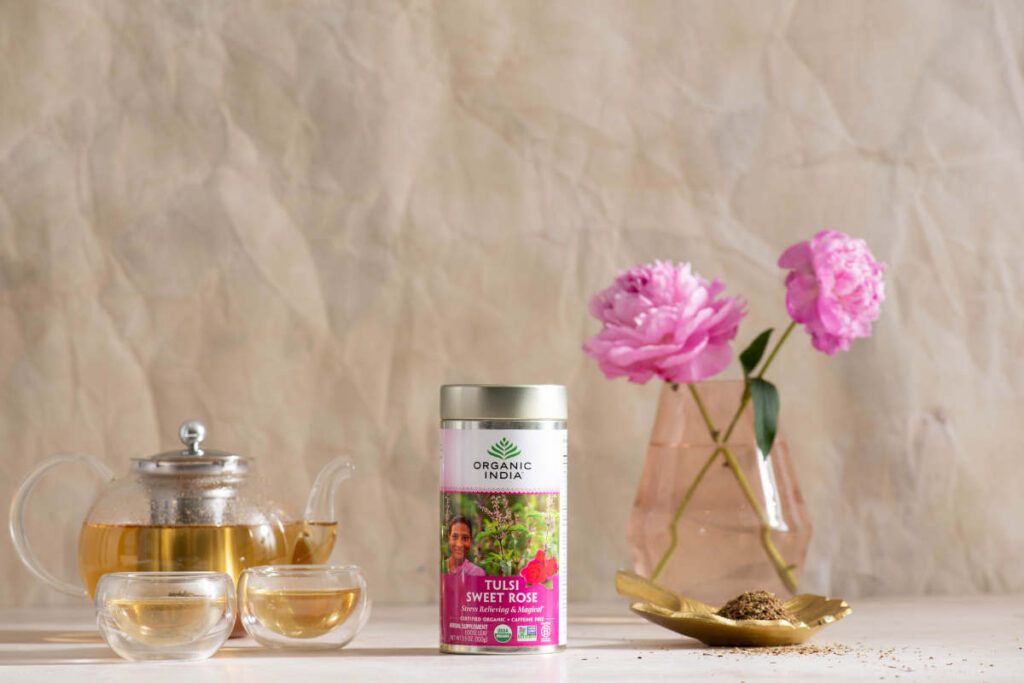
7 Beautiful Benefits of Rose Tea
Researchers have identified several beneficial plant compounds in Rose, including abundant phenolic compounds which are believed to be responsible for Rose’s benefits.
Phenolics possess a wide range of beneficial actions, such as acting as antioxidants, supporting inflammatory responses, and promoting mental and emotional well-being.
Some of these phenolics and other compounds include:
- Gallic acid
- Terpenes
- Glycosides
- Flavonoids
- Anthocyanins
- Essential fatty acids
- Essential oils
- Vitamin C (especially in Rose Hips, the fruit of the rose)
- Kaempferol
- Quercetin
Now that you understand what a Rose is made of, let’s explore a few of its benefits for body, mind, and spirit.
#1: Rose Tea Soothes Stress and Tension
The powerful scent of an ultra-fragrant rose is enough to uplift anyone’s mood.
In Ayurveda, and other traditional systems of wellness, Rose is used extensively to help relieve tension, soothe stress, calm the nerves, uplift mind and spirit, and soften the heart*.
There is research to support Rose’s use for stress and tension.
For example, studies have shown Rose may support various aspects of emotional well-being.
Rose essential oil has also been shown to support normal nervous system function, including dopamine levels. Dopamine is considered a “feel good” neurotransmitter associated with feelings of pleasure and happiness.
In fact, flowers of any type—including roses—have been shown to trigger the release of these happy chemicals.
The big takeaway is, drinking Rose tea may be a tasty and simple way to reduce stress and support overall happiness.
#2: Rose Tea Can Help Deepen Meditation & Spiritual Practices
Roses are considered high-energy flowers, and have a long history of use in spiritual practices, such as meditation, religious ceremonies, and prayer.
Roses are seen as a symbol of the divine feminine and the sacredness of the soul, and their scent and presence is synonymous with Saints, angels, and miracles.
Although it is difficult to prove the spiritual benefits of a plant, research has shown Rose may impart a slightly hypnotic effect, which may explain its use in spiritual practices.
Drinking Rose tea before, during, or after meditation, for example, may help deepen your practice by promoting relaxation, opening the heart chakra, and encouraging a peaceful flow state.
A cup of Rose tea may also prove enlightening when engaging in prayer, setting intentions, journaling, chanting, or other spiritual practices.
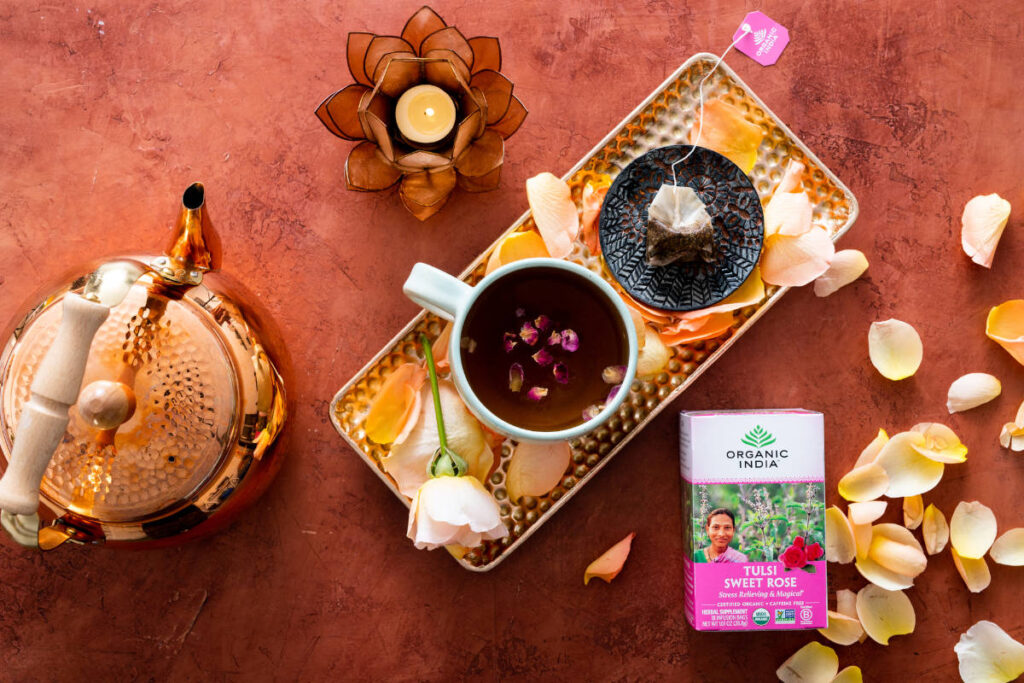
#3: May Help With Minor Pain Management
Many Ayurvedic herbs, such as the infamous Turmeric, have been shown effective for minor pain management and supporting normal inflammatory response*.
Emerging research also suggests Rose may help.
Preliminary studies have shown Rose may help with minor pain management via the effects of its antioxidants such as quercetin, kaempferol, and flavonoids, which support normal inflammatory response.
More research is needed to understand how Rose may support minor pain management.
#4: May Promote Normal Sugar Metabolism
Blood sugar balancing to support metabolism is a hot topic these days.
In Ayurveda, a combination of diet, movement, and specific traditional herbs, such as Bimbi Ceylon, Cinnamon, and Rose, are used to support the Doshas associated with normal metabolic processes, including sugar metabolism.
Although more research is needed, animal studies suggest Rose may support normal sugar metabolism by promoting normal serum glucose, insulin, adiponectin, triglyceride, and cholesterol in rats.
Rose’s calming effects and traditional use as a digestive aid may also explain its potential benefits for sugar metabolism*.
#5: Rose Tea May Help With Occasional Constipation
Rose is generally considered sweet in scent and flavor.
However, Rose also has bitter properties, which made it a trusted digestive-aid in Ayurveda*.
Science has begun to validate this traditional use, with research suggesting Rose and Rose tea may help with occasional constipation and liver support.
The relaxation properties and warmth of Rose tea may also provide additional digestive support*.
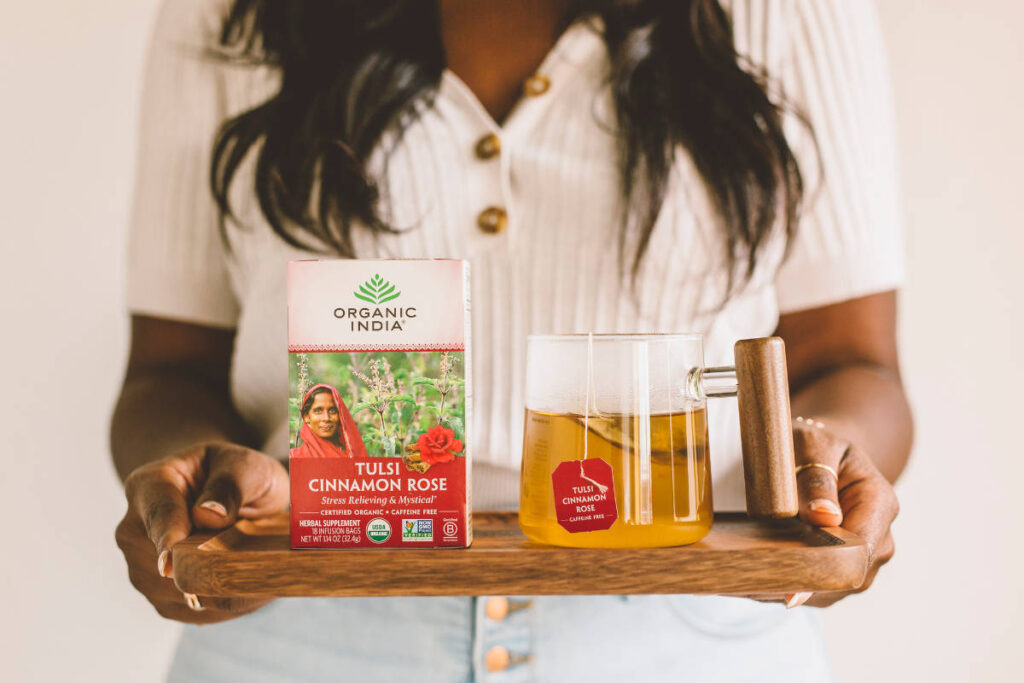
#6: Rose Tea has powerful Antioxidant Action
Roses have always been associated with the Heart—be it as a heart-protective tonic in Ayurveda or a symbol of love.
So, what does the research say about Ayurveda’s reverence for the Rose-Heart connection?
A growing body of research suggests a possible link between Rose and healthy cardiovascular function.
As you’ve already learned, Rose also contains a wealth of antioxidant compounds that may provide cardiovascular support via their effects on inflammatory response.
As previously noted, emerging research has also shown Rose may promote normal liver function, which may affect heart function via the liver’s role in cholesterol production and synthesis.
Although more research is needed, this preliminary evidence, coupled with Rose’s impressive antioxidant profile and anecdotal evidence based on traditional use, suggests Rose tea may support cardiovascular function.
#7: Rose Tea May Provide Menstrual Comfort
Various herbal teas, including Rose tea, have long been used to provide comfort during menstruation.
A small Taiwanese study suggests there may be efficacy in this ancient practice.
The study followed 130 teenage students who were instructed to drink 2 cups of rose tea daily for 12 days, starting one week before their period and for six menstrual cycles.
The students who drank the Rose tea reported less pain and better energetic and spiritual well-being than those who did not.
More research is needed, however, the aforementioned research on Rose’s potential benefits for emotional well-being and minor pain management, plus this study and traditional use suggest a benefit for menstrual comfort.
How To Brew The Perfect Cup
Drinking herbal teas, such as Rose tea, is a beautiful way to incorporate the benefits of herbs and flowers into your wellness routine.
High-quality, organically-grown rose petals are essential to making the perfect cup of rose tea and reaping its benefits.
Unfortunately, most roses grown for the floral industry are mass-produced, highly sprayed, and, therefore may not contain optimal concentrations of Rose’s precious plant compounds (plus, who wants a cupful of pesticide residue?).
At Organic India, our Roses are organically grown using regenerative agricultural practices and ethically sourced from farmer partners in India.
You will notice the difference as soon as you open a box of our Rose teas—the scent is incredible!
To brew the perfect cup of Rose tea:
- Pour one cup of freshly boiled water over the tea bag or 1-3 teaspoons of loose Rose tea.
- Cover to trap the steam, which helps improve flavor.
- Let steep for 3-5 minutes.
- Strain, sweeten with honey or stevia* (if desired), and enjoy.
*Organic India’s Sweet Tulsi Rose tea contains stevia and may not require further sweetening.
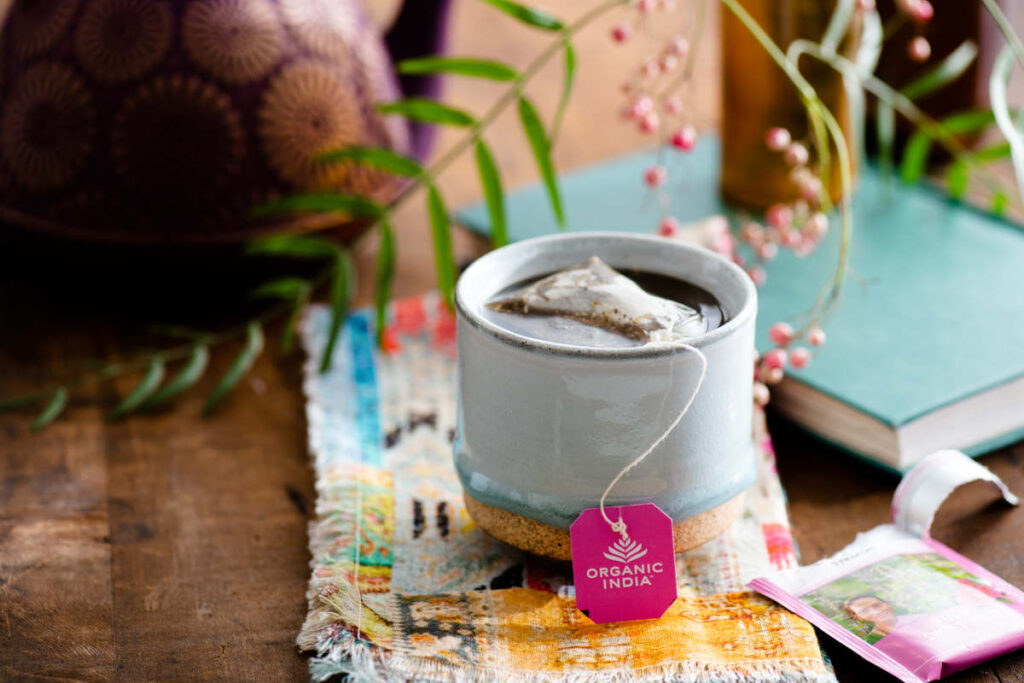
Elevate Your Self-Care Regime With Rose Tea Today
As a high-frequency flower teeming with nutritional and health benefits, Rose tea can nourish your body, mind, and spirit.
If you’re new to Rose tea, may we suggest Tulsi Sweet Rose Tea.
Available as a loose tea or sachets, this naturally sweet tea brings the benefits of rose plus adaptogenic Tulsi (aka Holy Basil) to an herbal tea infusion.
If you’re looking for a new way to enjoy the benefits of Rose tea, check out these recipes:
New to tea rituals? Check out How To Tap Into The Benefits Of Your Daily Tea Ritual for tips on how to get the most benefits from your Rose tea experience.
“Do not gulp the tea but sip it slowly allowing its fragrance to fill your mouth. There is no need to have any special attitude while drinking except one of thankfulness.”
– Pojong Sunim

